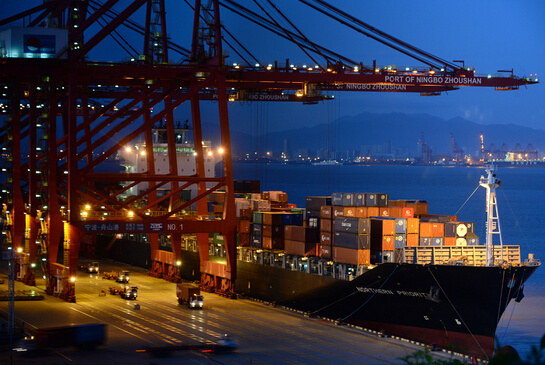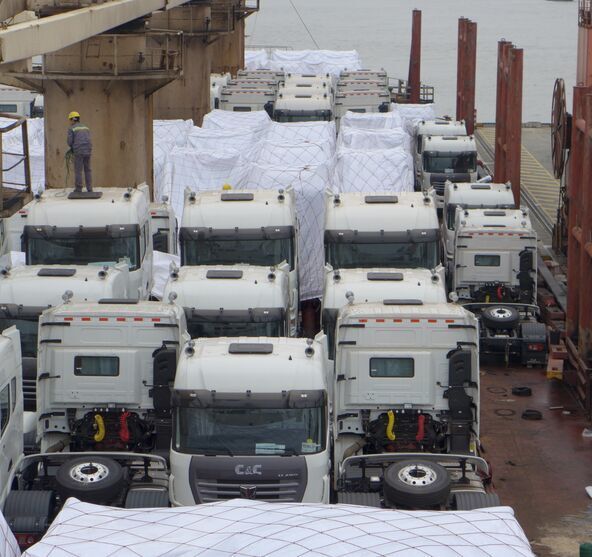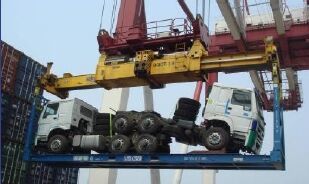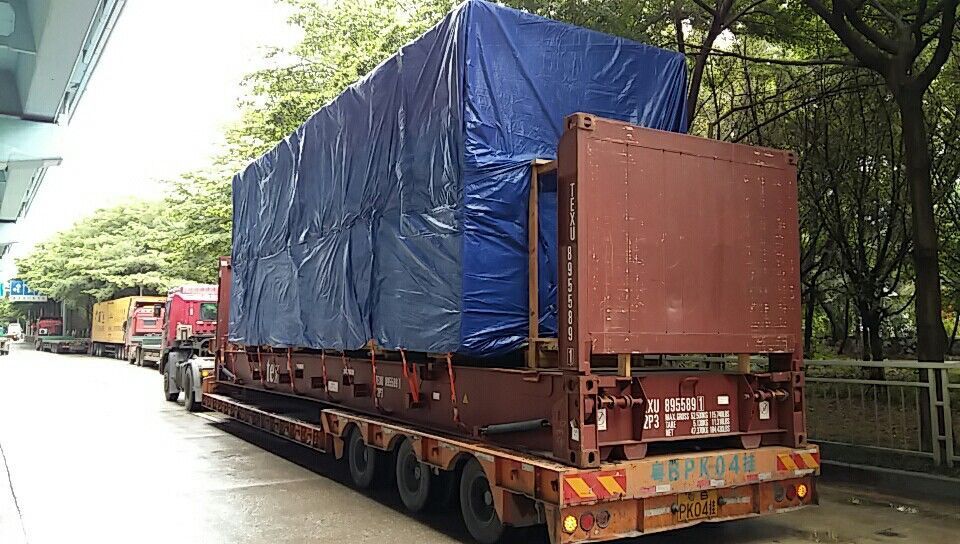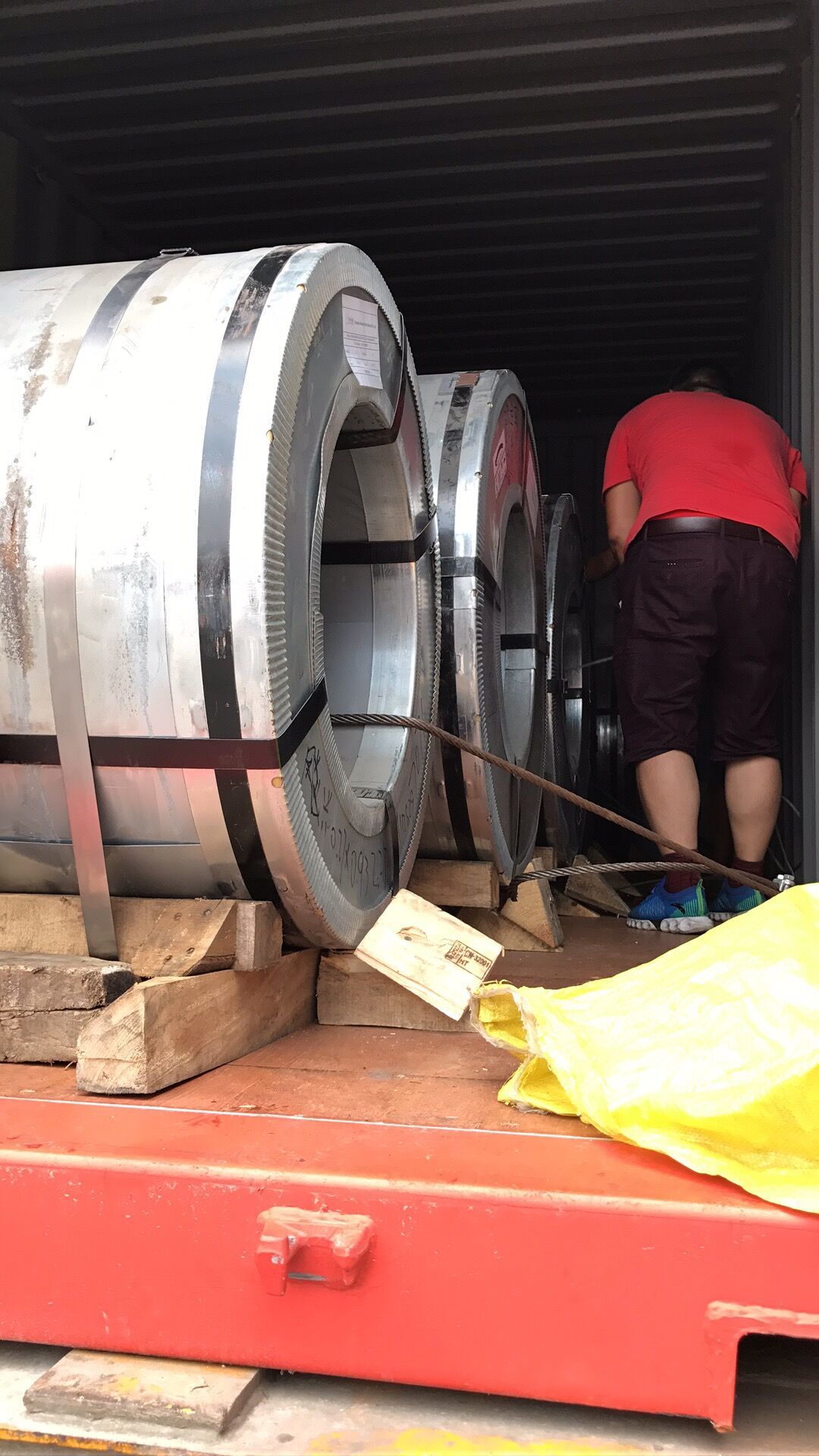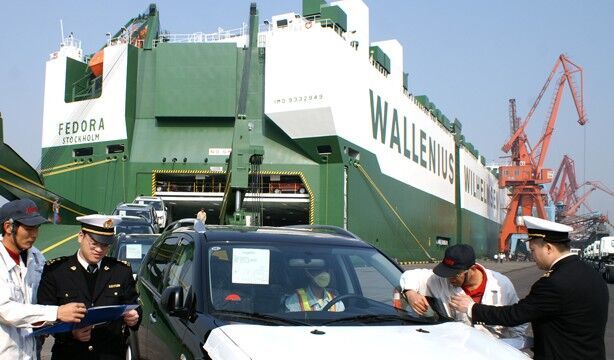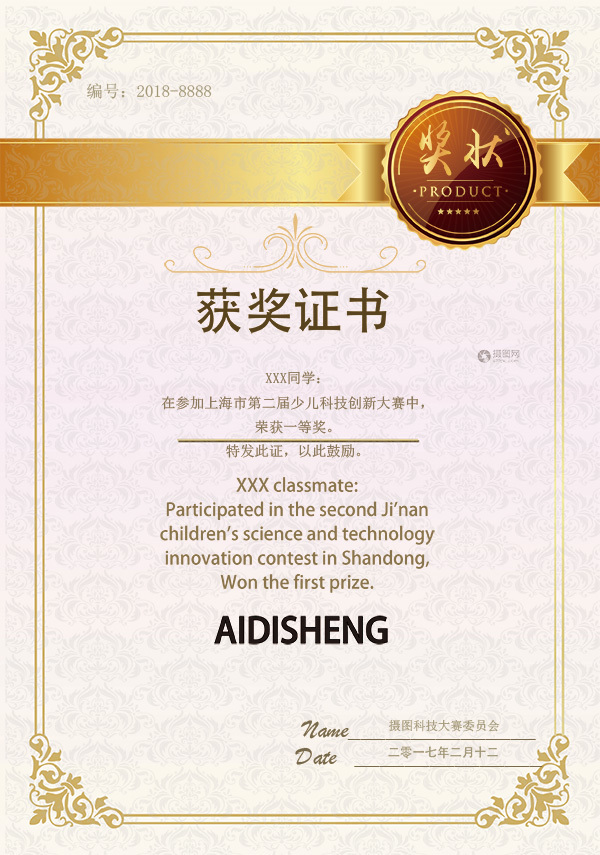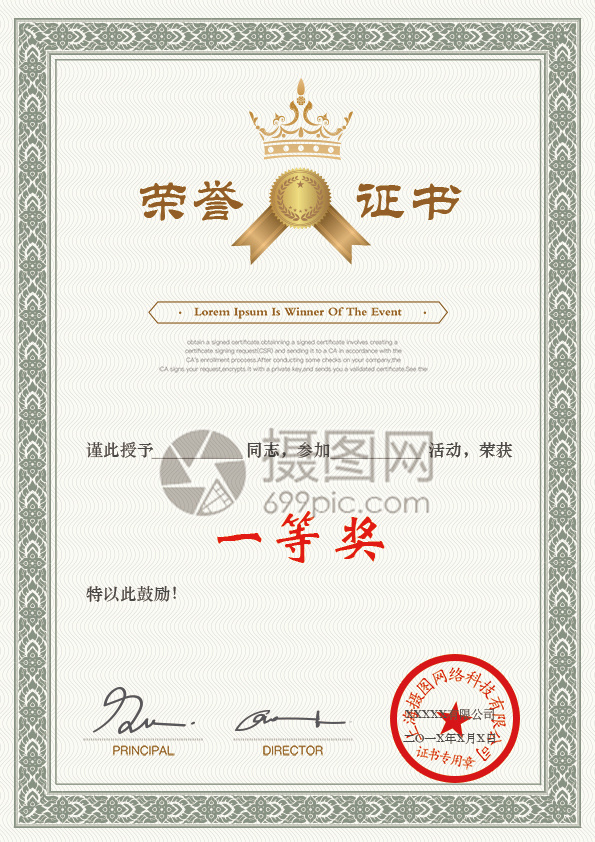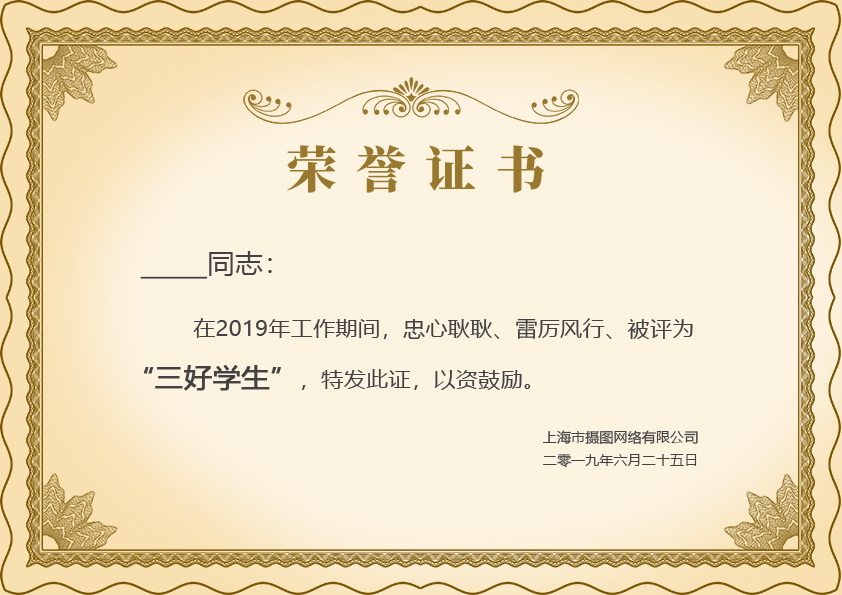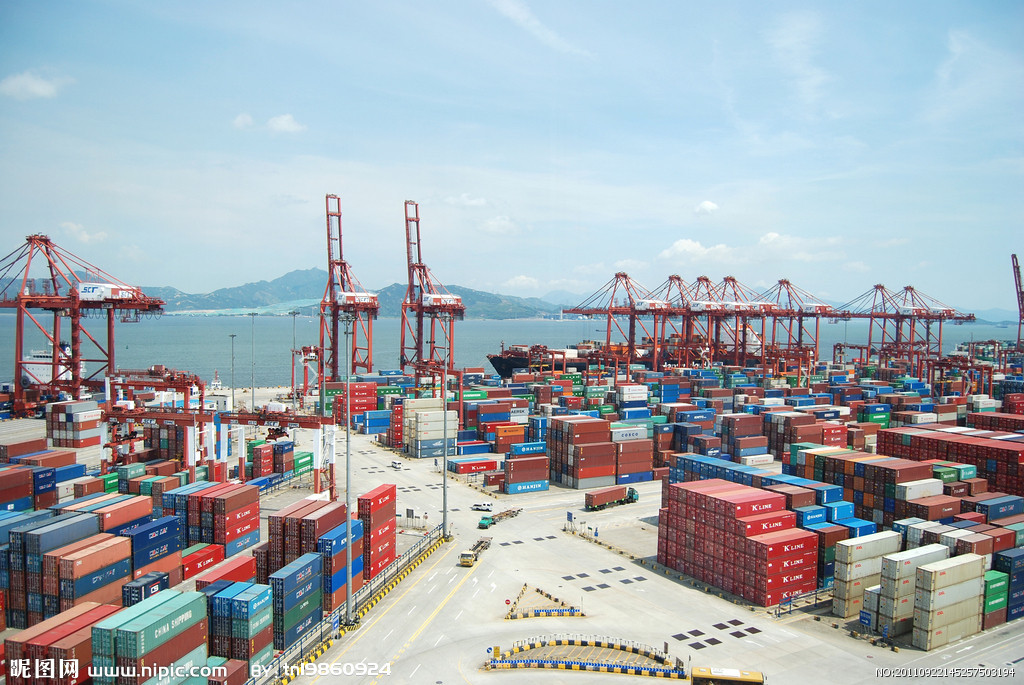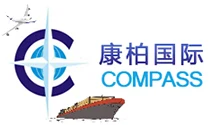The Customs Law of the People's Republic of China
Category:
Keywords:
- Product Description
-
中华人民共和国海关法
(1987年1月22日第六届全国人民代表大会常务委员会第十九次会议通过,根据2000年7月8日第九届全国人民代表大会常务委员会第十六次会议《关于修改〈中华人民共和国海关法〉的决定》修正)
目录
第一章 总则
第二章 进出境运输工具
第三章 进出境货物
第四章 进出境物品
第五章 关税
第六章 海关事务担保
第七章 执法监督
第八章 法律责任
第九章 附则
第一章 总则
第一条 为了维护国家的主权和利益,加强海关监督管理,促进对外经济贸易和科技文化交往,保障社会主义现代化建设,特制定本法。
第二条 中华人民共和国海关是国家的进出关境(以下简称进出境)监督管理机关。海关依照本法和其他有关法律、行政法规,监管进出境的运输工具、货物、行李物品、邮递物品和其他物品(以下简称进出境运输工具、货物、物品),征收关税和其他税、费,查缉走私,并编制海关统计和办理其他海关业务。
第三条 国务院设立海关总署,统一管理全国海关。
国家在对外开放的口岸和海关监管业务集中的地点设立海关。海关的隶属关系,不受行政区划的限制。
海关依法独立行使职权,向海关总署负责。
第四条 国家在海关总署设立专门侦查走私犯罪的公安机构,配备专职缉私警察,负责对其管辖的走私犯罪案件的侦查、拘留、执行逮捕、预审。
海关侦查走私犯罪公安机构履行侦查、拘留、执行逮捕、预审职责,应当按照《中华人民共和国刑事诉讼法》的规定办理。
海关侦查走私犯罪公安机构根据国家有关规定,可以设立分支机构。各分支机构办理其管辖的走私犯罪案件,应当依法向有管辖权的人民检察院移送起诉。
地方各级公安机关应当配合海关侦查走私犯罪公安机构依法履行职责。
第五条 国家实行联合缉私、统一处理、综合治理的缉私体制。海关负责组织、协调、管理查缉走私工作。有关规定由国务院另行制定。
各有关行政执法部门查获的走私案件,应当给予行政处罚的,移送海关依法处理;涉嫌犯罪的,应当移送海关侦查走私犯罪公安机构、地方公安机关依据案件管辖分工和法定程序办理。
第六条 海关可以行使下列权力:
(一)检查进出境运输工具,查验进出境货物、物品;对违反本法或者其他有关法律、行政法规的,可以扣留。
(二)查阅进出境人员的证件;查问违反本法或者其他有关法律、行政法规的嫌疑人,调查其违法行为。
(三)查阅、复制与进出境运输工具、货物、物品有关的合同、发票、帐册、单据、记录、文件、业务函电、录音录像制品和其他资料;对其中与违反本法或者其他有关法律、行政法规的进出境运输工具、货物、物品有牵连的,可以扣留。
(四)在海关监管区和海关附近沿海沿边规定地区,检查有走私嫌疑的运输工具和有藏匿走私货物、物品嫌疑的场所,检查走私嫌疑人的身体;对有走私嫌疑的运输工具、货物、物品和走私犯罪嫌疑人,经直属海关关长或者其授权的隶属海关关长批准,可以扣留;对走私犯罪嫌疑人,扣留时间不超过二十四小时,在特殊情况下可以延长至四十八小时。
在海关监管区和海关附近沿海沿边规定地区以外,海关在调查走私案件时,对有走私嫌疑的运输工具和除公民住处以外的有藏匿走私货物、物品嫌疑的场所,经直属海关关长或者其授权的隶属海关关长批准,可以进行检查,有关当事人应当到场;当事人未到场的,在有见证人在场的情况下,可以径行检查;对其中有证据证明有走私嫌疑的运输工具、货物、物品,可以扣留。
海关附近沿海沿边规定地区的范围,由海关总署和国务院公安部门会同有关省级人民政府确定。
(五)在调查走私案件时,经直属海关关长或者其授权的隶属海关关长批准,可以查询案件涉嫌单位和涉嫌人员在金融机构、邮政企业的存款、汇款。
(六)进出境运输工具或者个人违抗海关监管逃逸的,海关可以连续追至海关监管区和海关附近沿海沿边规定地区以外,将其带回处理。
(七)海关为履行职责,可以配备武器。海关工作人员佩带和使用武器的规则,由海关总署会同国务院公安部门制定,报国务院批准。
(八)法律、行政法规规定由海关行使的其他权力。
第七条 各地方、各部门应当支持海关依法行使职权,不得非法干预海关的执法活动。
第八条 进出境运输工具、货物、物品,必须通过设立海关的地点进境或者出境。在特殊情况下,需要经过未设立海关的地点临时进境或者出境的,必须经国务院或者国务院授权的机关批准,并依照本法规定办理海关手续。
第九条 进出口货物,除另有规定的外,可以由进出口货物收发货人自行办理报关纳税手续,也可以由进出口货物收发货人委托海关准予注册登记的报关企业办理报关纳税手续。
进出境物品的所有人可以自行办理报关纳税手续,也可以委托他人办理报关纳税手续。
第十条 报关企业接受进出口货物收发货人的委托,以委托人的名义办理报关手续的,应当向海关提交由委托人签署的授权委托书,遵守本法对委托人的各项规定。
报关企业接受进出口货物收发货人的委托,以自己的名义办理报关手续的,应当承担与收发货人相同的法律责任。
委托人委托报关企业办理报关手续的,应当向报关企业提供所委托报关事项的真实情况;报关企业接受委托人的委托办理报关手续的,应当对委托人所提供情况的真实性进行合理审查。
第十一条 进出口货物收发货人、报关企业办理报关手续,必须依法经海关注册登记。报关人员必须依法取得报关从业资格。未依法经海关注册登记的企业和未依法取得报关从业资格的人员,不得从事报关业务。
报关企业和报关人员不得非法代理他人报关,或者超出其业务范围进行报关活动。
第十二条 海关依法执行职务,有关单位和个人应当如实回答询问,并予以配合,任何单位和个人不得阻挠。
海关执行职务受到暴力抗拒时,执行有关任务的公安机关和人民武装警察部队应当予以协助。
第十三条 海关建立对违反本法规定逃避海关监管行为的举报制度。
任何单位和个人均有权对违反本法规定逃避海关监管的行为进行举报。
海关对举报或者协助查获违反本法案件的有功单位和个人,应当给予精神的或者物质的奖励。
海关应当为举报人保密。
第二章 进出境运输工具
第十四条 进出境运输工具到达或者驶离设立海关的地点时,运输工具负责人应当向海关如实申报,交验单证,并接受海关监管和检查。
停留在设立海关的地点的进出境运输工具,未经海关同意,不得擅自驶离。
进出境运输工具从一个设立海关的地点驶往另一个设立海关的地点的,应当符合海关监管要求,办理海关手续,未办结海关手续的,不得改驶境外。
第十五条 进境运输工具在进境以后向海关申报以前,出境运输工具在办结海关手续以后出境以前,应当按照交通主管机关规定的路线行进;交通主管机关没有规定的,由海关指定。
第十六条 进出境船舶、火车、航空器到达和驶离时间、停留地点、停留期间更换地点以及装卸货物、物品时间,运输工具负责人或者有关交通运输部门应当事先通知海关。
第十七条 运输工具装卸进出境货物、物品或者上下进出境旅客,应当接受海关监管。
货物、物品装卸完毕,运输工具负责人应当向海关递交反映实际装卸情况的交接单据和记录。
上下进出境运输工具的人员携带物品的,应当向海关如实申报,并接受海关检查。
第十八条 海关检查进出境运输工具时,运输工具负责人应当到场,并根据海关的要求开启舱室、房间、车门;有走私嫌疑的,并应当开拆可能藏匿走私货物、物品的部位,搬移货物、物料。
海关根据工作需要,可以派员随运输工具执行职务,运输工具负责人应当提供方便。
第十九条 进境的境外运输工具和出境的境内运输工具,未向海关办理手续并缴纳关税,不得转让或者移作他用。
第二十条 进出境船舶和航空器兼营境内客、货运输,需经海关同意,并应当符合海关监管要求。
进出境运输工具改营境内运输,需向海关办理手续。
第二十一条 沿海运输船舶、渔船和从事海上作业的特种船舶,未经海关同意,不得载运或者换取、买卖、转让进出境货物、物品。
第二十二条 进出境船舶和航空器,由于不可抗力的原因,被迫在未设立海关的地点停泊、降落或者抛掷、起卸货物、物品,运输工具负责人应当立即报告附近海关。
第三章 进出境货物
第二十三条 进口货物自进境起到办结海关手续止,出口货物自向海关申报起到出境止,过境、转运和通运货物自进境起到出境止,应当接受海关监管。
第二十四条 进口货物的收货人、出口货物的发货人应当向海关如实申报,交验进出口许可证件和有关单证。国家限制进出口的货物,没有进出口许可证件的,不予放行,具体处理办法由国务院规定。
进口货物的收货人应当自运输工具申报进境之日起十四日内,出口货物的发货人除海关特准的外应当在货物运抵海关监管区后、装货的二十四小时以前,向海关申报。
进口货物的收货人超过前款规定期限向海关申报的,由海关征收滞报金。
第二十五条 办理进出口货物的海关申报手续,应当采用纸质报关单和电子数据报关单的形式。
第二十六条 海关接受申报后,报关单证及其内容不得修改或者撤销;确有正当理由的,经海关同意,方可修改或者撤销。
第二十七条 进口货物的收货人经海关同意,可以在申报前查看货物或者提取货样。需要依法检疫的货物,应当在检疫合格后提取货样。
第二十八条 进出口货物应当接受海关查验。海关查验货物时,进口货物的收货人、出口货物的发货人应当到场,并负责搬移货物,开拆和重封货物的包装。海关认为必要时,可以径行开验、复验或者提取货样。
Upon application by the consignee and consignor, and with the approval of the General Administration of Customs, their import and export goods may be exempted from inspection.
Article 29 Except as specially permitted by the Customs, import and export goods shall be released by the Customs after the consignee and consignor have paid the taxes or provided a guarantee.
Article 30 If the consignee of imported goods fails to declare to the Customs within three months from the date the means of transport declares entry, the Customs shall retrieve the imported goods and dispose of them legally. After deducting transportation, loading and unloading, storage fees and taxes from the proceeds, any remaining funds shall be returned to the consignee upon application within one year from the date of the legal sale of the goods; those subject to national import restrictions and requiring submission of permits which cannot be provided shall not be returned. If no one applies for the return or the return is not granted within the time limit, the funds shall be turned over to the national treasury.
For imported goods that are indeed wrongly unloaded or over-unloaded, after verification by the Customs, the person in charge of the original means of transport or the consignee and consignor of the goods shall handle the return or import procedures within three months from the date of unloading from the means of transport; if necessary, with the approval of the Customs, the deadline may be extended by three months. If the procedures are not completed within the time limit, the Customs shall handle them according to the provisions of the preceding paragraph.
If the goods listed in the preceding two paragraphs are not suitable for long-term storage, the Customs may handle them in advance according to the actual situation.
Imported goods that the consignee or owner of the goods declares to abandon shall be retrieved by the Customs and disposed of legally; the proceeds, after deducting transportation, loading and unloading, and storage fees, shall be turned over to the national treasury.
Article 31 Goods temporarily imported or temporarily exported with the approval of the Customs shall be re-exported or re-imported within six months; in special circumstances, with the consent of the Customs, the deadline may be extended.
Article 32 The operation of bonded goods storage, processing, assembly, display, transportation, consignment and duty-free shops shall comply with the Customs supervision requirements, be approved by the Customs, and registration procedures shall be completed.
The transfer, movement and entry and exit of bonded goods from bonded areas shall be handled with the Customs and subject to Customs supervision and inspection.
Article 33 Enterprises engaged in processing trade shall register with the Customs with relevant approval documents and processing trade contracts, and the unit consumption of materials for processing trade finished products shall be determined by the Customs in accordance with relevant regulations.
Processing trade finished products shall be re-exported within the prescribed time limit. Among the imported components used, those that are permitted to be bonded according to national regulations shall be handled with the Customs for verification; those that are subject to advance tax collection shall be handled with the Customs for tax refund according to law.
If bonded imported materials or finished products for processing trade are diverted to domestic sales due to certain reasons, the Customs shall, with the approval document for domestic sales, levy taxes on the bonded imported materials according to law; those subject to national import restrictions shall also submit import licenses to the Customs.
Article 34 Bonded areas and other special Customs supervision areas established within the People's Republic of China with the approval of the State Council shall be supervised by the Customs in accordance with relevant national regulations.
Article 35 Imported goods shall be handled by the consignee at the Customs of the place of entry, and exported goods shall be handled by the consignor at the Customs of the place of exit.
With the application of the consignee and consignor and the consent of the Customs, the consignee of imported goods may handle Customs procedures at the designated place of delivery with Customs, and the consignor of exported goods may handle Customs procedures at the place of shipment with Customs. The transit transportation of the above-mentioned goods shall comply with the Customs supervision requirements; if necessary, the Customs may dispatch personnel for escort.
For goods transported in and out through cables, pipelines or other special means, the operating units shall regularly declare and handle Customs procedures with the designated Customs.
Article 36 For transit, transshipment and through transport goods, the person in charge of the means of transport shall make a true declaration to the Customs of the place of entry and shall transport the goods out of the country within the prescribed time limit.
The Customs may inspect transit, transshipment and through transport goods if deemed necessary.
Article 37 Customs-supervised goods shall not be opened, extracted, delivered, shipped, exchanged, modified, mortgaged, pledged, detained, transferred, relabeled, diverted or otherwise disposed of without the permission of the Customs.
No one shall arbitrarily open or damage the seals affixed by the Customs.
If the People's Court makes a judgment or ruling, or relevant administrative law enforcement departments decide to deal with Customs-supervised goods, the parties concerned shall be ordered to complete the Customs procedures.
Article 38 Enterprises operating Customs-supervised goods warehousing business shall be registered with the Customs and handle the receipt and delivery procedures in accordance with Customs regulations.
Storage of Customs-supervised goods outside the Customs supervision area shall be approved by the Customs and subject to Customs supervision.
Violation of the provisions of the preceding two paragraphs or damage or loss of Customs-supervised goods during custody, except for force majeure, the person with the custody obligation of Customs-supervised goods shall bear the corresponding tax obligations and legal liabilities.
Article 39 The supervision methods for import and export containers, the supervision methods for salvage of import and export goods and sunken ships, the supervision methods for cross-border small-scale trade import and export goods, and other supervision methods for import and export goods not specifically listed in this Law shall be formulated separately by the General Administration of Customs or by the General Administration of Customs in conjunction with relevant departments of the State Council.
Article 40 Where the state has prohibitive or restrictive regulations on the import and export of goods and articles, the Customs shall implement supervision in accordance with the provisions of laws, administrative regulations and the State Council, or the provisions made by relevant departments of the State Council authorized by laws and administrative regulations. Specific supervision methods shall be formulated by the General Administration of Customs.
Article 41 The origin of import and export goods shall be determined in accordance with the provisions of national rules of origin.
Article 42 The classification of goods for import and export goods shall be determined in accordance with national regulations on the classification of goods.
The Customs may require the consignee and consignor of import and export goods to provide relevant information needed to determine the classification of goods; if necessary, the Customs may organize tests and inspections, and the test and inspection results determined by the Customs shall be used as the basis for the classification of goods.
Article 43 The Customs may, based on written applications from foreign trade operators, make advance administrative rulings on the classification of goods for goods intended for import or export.
The same administrative rulings on the classification of goods shall apply to the import or export of the same goods.
The Customs shall publish the administrative rulings made on the classification of goods.
Article 34 The Customs shall protect intellectual property rights related to import and export goods in accordance with the provisions of laws and administrative regulations.
Those who need to declare intellectual property rights status to customs should truthfully declare the relevant intellectual property rights status to customs in accordance with national regulations and submit proof of legal use of the relevant intellectual property rights.
Article 45 Within three years from the date of release of import and export goods, or within the customs supervision period of bonded goods and duty-free imported goods and the following three years, customs may conduct audits of the accounting books, accounting vouchers, customs declaration documents, and other relevant materials and relevant import and export goods of enterprises and units directly related to the import and export goods. Specific methods shall be stipulated by the State Council.
第四章 进出境物品
Article 46 Personal luggage and articles carried in and out of the country, and articles mailed in and out of the country, shall be limited to personal use and reasonable quantities, and shall be subject to customs supervision.
Article 47 The owner of import and export articles shall truthfully declare to the customs and accept customs inspection.
No one shall arbitrarily open or damage the seals affixed by the Customs.
Article 48 The loading, unloading, transfer, and transit of inbound and outbound postal bags shall be subject to customs supervision. Postal enterprises shall submit mail waybills to customs.
Postal enterprises shall notify the customs in advance of the time for opening and sealing international postal bags, and the customs shall send personnel to the scene for supervision and inspection on time.
Article 49 Articles mailed in and out of the country may be delivered or delivered by relevant operating units only after customs inspection and release.
Article 50 Articles temporarily exempted from tax upon entry or exit registered by customs shall be brought back out or into the country by the person himself.
Transit personnel shall not leave their belongings in the country without the approval of the customs.
Article 51 Articles declared abandoned by the owner of import and export articles, articles for which customs procedures have not been completed within the time limit stipulated by the customs, or articles for which no one claims, as well as inbound postal items that cannot be delivered or returned, shall be handled by the customs in accordance with the provisions of Article 30 of this Law.
Article 52 The import and export of official supplies or personal articles of foreign institutions or personnel enjoying diplomatic privileges and immunities shall be handled in accordance with the provisions of relevant laws and administrative regulations.
第五章 关税
Article 53 Customs shall levy customs duties on goods and articles permitted for import and export in accordance with the law.
Article 54 The consignee of imported goods, the consignor of exported goods, and the owner of import and export articles are the taxpayers of customs duties.
Article 55 The dutiable price of import and export goods shall be examined and determined by the customs on the basis of the transaction price of the goods. If the transaction price cannot be determined, the dutiable price shall be estimated by the customs in accordance with the law.
The dutiable price of imported goods includes the price of the goods, the transportation and related expenses, and insurance fees before the goods are unloaded at the place of entry into the People's Republic of China; the dutiable price of exported goods includes the price of the goods, the transportation and related expenses, and insurance fees before the goods are loaded at the place of exit from the People's Republic of China, but the amount of export customs duties included therein shall be deducted.
The dutiable price of import and export articles shall be determined by the customs in accordance with the law.
Article 56 The following import and export goods and articles shall be reduced or exempted from customs duties:
(1) Advertising materials and samples without commercial value;
(2) Materials gratuitously donated by foreign governments and international organizations;
(3) Goods damaged or lost before customs release;
(4) Articles within the prescribed amount;
(5) Other goods and articles whose customs duties are reduced or exempted as stipulated by law;
(6) Goods and articles whose customs duties are reduced or exempted as stipulated in international treaties concluded or participated in by the People's Republic of China.
Article 57 Import and export goods in specific regions, specific enterprises, or with specific uses may be reduced or exempted from customs duties. The scope and methods of specific tax reduction or exemption shall be stipulated by the State Council.
Goods imported with reduced or exempted customs duties in accordance with the preceding paragraph can only be used in specific regions, specific enterprises, or for specific purposes, and shall not be used for other purposes without the approval of the customs and supplementary payment of customs duties.
Article 58 Temporary reduction or exemption of customs duties outside the scope stipulated in Article 56 and paragraph 1 of Article 57 of this Law shall be decided by the State Council.
Article 59 Goods temporarily imported or temporarily exported with the approval of the customs, and bonded goods specially approved for import, shall be temporarily exempted from customs duties after the consignee and consignor of the goods pay a deposit equivalent to the tax amount or provide a guarantee to the customs.
Article 60 The taxpayer of import and export goods shall pay the tax within fifteen days from the date of issuance of the tax payment notice by the customs; for overdue payment, the customs shall collect late payment fees. If the taxpayer or guarantor fails to pay for more than three months, the customs may, with the approval of the director of the directly affiliated customs or the director of the subordinate customs authorized by him, take the following compulsory measures:
(1) Written notice to its account opening bank or other financial institution to deduct the tax from its deposits;
(2) Legally sell the taxable goods to offset the tax with the proceeds from the sale;
(3) Seize and legally sell its goods or other property equivalent to the amount of tax payable to offset the tax with the proceeds from the sale.
When the customs takes compulsory measures, it shall also compulsorily enforce the unpaid late payment fees of the taxpayers and guarantors listed in the preceding paragraph.
The taxpayer of import and export articles shall pay the tax before the release of the articles.
Article 61 If the taxpayer of import and export goods has obvious signs of transferring or concealing its taxable goods and other property within the prescribed tax payment period, the customs may order the taxpayer to provide a guarantee; if the taxpayer fails to provide a tax guarantee, the customs may, with the approval of the director of the directly affiliated customs or the director of the subordinate customs authorized by him, take the following tax preservation measures:
(1) Written notice to the taxpayer's account opening bank or other financial institution to suspend payment of the taxpayer's deposits equivalent to the amount of tax payable;
(2) Seize the taxpayer's goods or other property equivalent to the amount of tax payable.
If taxpayers pay taxes within the prescribed tax deadline, customs must immediately lift the tax preservation measures; if taxes are still not paid after the deadline expires, with the approval of the director-general of the competent customs or the director-general of the subordinate customs authorized by him, customs may notify the taxpayer's bank or other financial institution in writing to deduct taxes from its suspended payments, or legally sell the seized goods or other property to offset the taxes with the proceeds of the sale.
If tax preservation measures are improperly taken, or if the taxpayer has already paid taxes within the prescribed time limit but customs has not immediately lifted the tax preservation measures, resulting in losses to the taxpayer's legitimate rights and interests, customs shall bear the liability for compensation according to law.
Article 62 After the release of import and export goods and articles entering or leaving the country, if customs finds that taxes have been undercharged or missed, it shall collect the undercharged or missed taxes from the taxpayer within one year from the date of payment of taxes or the release of goods or articles. For undercharges or omissions caused by the taxpayer's violation of regulations, customs may collect the undercharges within three years.
Article 63 If customs overcharges taxes, customs shall immediately refund them upon discovery; the taxpayer may request a refund from customs within one year from the date of tax payment.
Article 64 When a taxpayer has a tax dispute with customs, they shall pay the tax and may apply for administrative reconsideration according to law; if they are still dissatisfied with the reconsideration decision, they may bring a lawsuit to the people's court according to law.
Article 65 The collection and administration of taxes levied by customs on behalf of others at the import stage shall apply to the provisions of customs duty collection and administration.
第六章 海关事务担保
Article 66 Before determining the commodity classification, valuation of goods, and provision of valid customs declaration documents or completion of other customs procedures, if the consigner or consignor requests the release of goods, customs shall release them after they provide guarantees commensurate with their legal obligations. Exceptions are made where laws and administrative regulations stipulate that guarantees may be waived.
If laws and administrative regulations have other provisions on guarantees for the performance of customs duties, those provisions shall prevail.
If the state has restrictive regulations on goods and articles entering or leaving the country, and the required permits cannot be provided, or in other circumstances where guarantees are not permitted by law or administrative regulations, customs shall not handle guaranteed release.
Article 67 Legal persons, other organizations, or citizens with the ability to provide guarantees for customs matters may become guarantors. Exceptions are made where the law stipulates that they may not be guarantors.
Article 68 Guarantors may provide guarantees with the following property or rights:
(1) Renminbi, freely convertible currencies;
(2) Bills of exchange, promissory notes, checks, bonds, deposit certificates;
(3) Letters of guarantee from banks or non-bank financial institutions;
(4) Other property or rights recognized by customs according to law.
Article 69 The guarantor shall bear the guarantee responsibility within the guarantee period. The performance of the guarantee responsibility by the guarantor shall not exempt the guaranteed party from the obligation to handle relevant customs procedures.
Article 70 The administrative measures for customs matters guarantees shall be stipulated by the State Council.
第七章 执法监督
Article 71 In performing its duties, customs must abide by the law, uphold national interests, strictly enforce the law in accordance with its statutory powers and procedures, and accept supervision.
Article 72 Customs officers must impartially enforce the law, maintain integrity and self-discipline, be loyal to their duties, and provide civilized services. They shall not engage in the following acts:
(1) Conniving at or condoning smuggling or colluding with others to engage in smuggling;
(2) Illegally restricting the personal freedom of others, illegally inspecting the bodies, residences, or premises of others, or illegally inspecting or detaining inbound and outbound transport vehicles, goods, or articles;
(3) Using their powers to seek personal gain for themselves or others;
(4) Soliciting or accepting bribes;
(5) Leaking state secrets, trade secrets, and customs work secrets;
(6) Abusing power, deliberately making things difficult, delaying supervision and inspection;
(7) Purchasing, privately distributing, or occupying confiscated smuggled goods or articles;
(8) Participating in or indirectly participating in profit-making business activities;
(9) Performing duties in violation of legal procedures or exceeding authority;
(10) Other illegal acts.
Article 73 Customs shall strengthen team building according to the needs of performing its duties according to law, so that customs officers have good political and professional qualities.
Customs professionals shall have legal and related professional knowledge and meet the professional job requirements stipulated by customs.
Customs recruitment shall be conducted in accordance with national regulations, through open examinations, strict assessments, and the selection of the best candidates.
Customs shall conduct planned political ideology, legal system, customs business training, and assessments for its staff. Customs officers must undergo regular training and assessments. Those who fail the assessment shall not continue to work.
Article 74 The General Administration of Customs shall implement a system of regular rotation of customs directors.
Customs directors shall regularly report to the higher-level customs on their performance of duties, truthfully stating their performance of duties. The General Administration of Customs shall regularly assess the directors of its subordinate customs, and the subordinate customs shall regularly assess the directors of their subordinate customs.
Article 75 The administrative law enforcement activities of customs and its personnel shall be subject to the supervision of the supervisory organs according to law; the investigation activities of the anti-smuggling police shall be subject to the supervision of the People's Procuratorate according to law.
Article 76 The auditing organs shall conduct audit supervision of the financial revenue and expenditure of customs according to law, and have the right to conduct special audit investigations into matters handled by customs related to national financial revenue and expenditure.
Article 77 Higher-level customs shall supervise the law enforcement activities of lower-level customs according to law. If a higher-level customs considers the handling or decision of a lower-level customs to be inappropriate, it may change or revoke it according to law.
Article 78 Customs shall establish and improve an internal supervision system in accordance with the provisions of this Law and other relevant laws and administrative regulations, and conduct supervision and inspection of its personnel's enforcement of laws, administrative regulations, and compliance with discipline.
Article 79 The responsibilities and powers of the main positions in customs responsible for document review, inspection, release, inspection, and investigation shall be clearly defined and mutually separated and mutually constrained.
Article 80: Any unit or individual has the right to accuse or report any illegal or disciplinary violations of the customs and its staff. The authority that receives the accusation or report and has the right to handle it shall conduct an investigation and make a decision in accordance with the law and its responsibilities. The authorities receiving the accusation or report and those in charge of the investigation should keep the accuser and reporter's information confidential.
Article 81: Customs officers shall recuse themselves when investigating and handling illegal cases under any of the following circumstances:
(1) They are a party to the case or a close relative of a party;
(2) They or their close relatives have an interest in the case;
(3) They have other relationships with the parties involved that may affect the impartial handling of the case.
第八章 法律责任
Article 82: Violating this Law and relevant laws and administrative regulations, evading customs supervision, and evading payable taxes or escaping the state's relevant prohibitive or restrictive management of entry and exit, under any of the following circumstances constitutes smuggling:
(1) Transporting, carrying, or mailing goods or articles prohibited or restricted from entry or exit by the state, or goods or articles subject to tax payment;
(2) Without customs permission and without paying the payable taxes or presenting relevant permits, selling bonded goods, specific duty-free goods, and other customs-supervised goods, articles, or foreign transport vehicles in the country;
(3) Any other behavior that evades customs supervision and constitutes smuggling.
For any of the acts listed in the preceding paragraph that do not constitute a crime, the customs shall confiscate the smuggled goods and articles and illegal gains, and may impose a fine; goods or articles specifically or repeatedly used to conceal smuggling, and transport vehicles specifically or repeatedly used for smuggling shall be confiscated, and special equipment used to conceal smuggled goods and articles shall be ordered to be demolished or confiscated.
For any of the acts listed in the preceding paragraph that constitute a crime, criminal responsibility shall be investigated according to law.
Article 83: The following acts shall be treated as smuggling and punished according to the provisions of Article 82 of this Law:
(1) Directly and illegally purchasing smuggled imported goods or articles from smugglers;
(2) In the inland sea, territorial waters, boundary rivers, or boundary lakes, ships and the personnel they carry transporting, purchasing, or selling goods or articles prohibited or restricted from entry or exit by the state, or transporting, purchasing, or selling goods subject to tax payment, without legal proof.
Article 84: Forging, altering, or selling customs documents; colluding with smugglers to provide smugglers with loans, funds, accounts, invoices, certificates, customs documents; colluding with smugglers to provide smugglers with transportation, storage, mailing, or other conveniences; if it constitutes a crime, criminal responsibility shall be investigated according to law; if it does not constitute a crime, the customs shall confiscate the illegal gains and impose a fine.
Article 85: Individuals carrying or mailing personal items exceeding a reasonable quantity for personal use into or out of the country without legally declaring to customs shall be ordered to pay the customs duties and may be fined.
Article 86: For any of the following violations of this Law, a fine may be imposed, and illegal gains shall be confiscated if any exist:
(1) Transport vehicles entering or leaving the country without passing through designated customs locations;
(2) Failure to notify customs of the arrival time, location of stay, or change of location of the transport vehicle;
(3) False declarations to customs regarding import and export goods, articles, or transit, transfer, or through transportation goods;
(4) Failure to comply with regulations for customs inspection of inbound and outbound transport vehicles, goods, and articles;
(5) Inbound or outbound transport vehicles loading or unloading inbound or outbound goods, articles, or passengers without the consent of customs;
(6) Inbound or outbound transport vehicles staying at designated customs locations leaving without the consent of customs;
(7) Inbound or outbound transport vehicles traveling from one designated customs location to another without completing customs procedures and without customs approval, and changing course to an area outside the country or an area within the country without customs approval;
(8) Inbound or outbound transport vehicles operating or changing their operation to domestic transportation without the consent of customs;
(9) Due to force majeure, inbound or outbound ships and aircraft are forced to dock or land at locations without customs or to discard or unload goods or articles within the country, and without justifiable reason, failing to report to the nearest customs;
(10) Without customs permission, opening, extracting, delivering, shipping, exchanging, modifying, mortgaging, pledging, retaining, transferring, changing markings, diverting, or otherwise disposing of customs-supervised goods;
(11) Opening or damaging customs seals;
(12) Businesses engaged in the transportation, storage, processing, etc., of customs-supervised goods, for which goods are lost or records are inaccurate, and cannot provide a justifiable reason;
(13) Other violations of customs supervision regulations.
Article 87: Enterprises permitted by customs to engage in relevant businesses that violate the relevant provisions of this Law shall be ordered by customs to correct their violations, and may be given warnings, their engagement in the relevant business suspended, or their registration revoked.
Article 88: Those engaged in customs declaration business without customs registration and customs declaration qualification shall be banned by customs, their illegal gains confiscated, and a fine imposed.
Article 89: Customs declaration enterprises and personnel illegally acting as agents for others or conducting customs declaration activities exceeding their scope of business shall be ordered to correct their violations by customs, fined, and their practice suspended; for serious cases, their customs declaration registration shall be revoked and their customs declaration qualification canceled.
Article 90: Importers and exporters, customs declaration enterprises, and customs declaration personnel who bribe customs officers shall have their customs declaration registration revoked, their customs declaration qualification canceled, and be fined; if it constitutes a crime, criminal responsibility shall be investigated according to law, and they shall not be allowed to re-register as customs declaration enterprises or obtain customs declaration qualification certificates.
Article 91: Those who violate the provisions of this Law and import or export goods that infringe upon intellectual property rights protected by the laws and administrative regulations of the People's Republic of China shall have the infringing goods confiscated by the customs in accordance with the law, and shall also be fined; if a crime is constituted, criminal responsibility shall be investigated according to law.
Article 92: Goods, articles, and means of transport lawfully detained by the customs shall not be disposed of before the judgment of the people's court or the customs' penalty decision is made. However, dangerous goods or fresh, perishable, or easily spoiled goods, articles, and means of transport, as well as goods, articles, and means of transport that the owner applies to be sold in advance, may, upon approval by the director of the directly affiliated customs or the director of the subordinate customs authorized by him, be sold in advance in accordance with the law; the proceeds from the sale shall be kept by the customs, and the owner shall be notified.
Smuggled goods, articles, illegal gains, means of transport used for smuggling, and special equipment that are confiscated by the people's court or decided to be confiscated by the customs shall be uniformly handled by the customs in accordance with the law; all proceeds and fines imposed by the customs shall be turned over to the central treasury.
Article 93: If a party fails to perform a customs penalty decision within the time limit and does not apply for reconsideration or bring a lawsuit to the people's court, the customs that made the penalty decision may offset the penalty against the deposit or the value of the goods, articles, or means of transport that have been detained, or may apply to the people's court for compulsory enforcement.
Article 94: If the customs damages the goods or articles being inspected when inspecting inbound and outbound goods and articles, it shall compensate for the actual losses.
Article 95: If the customs unlawfully detains goods, articles, or means of transport, causing losses to the legitimate rights and interests of the party, it shall bear the liability for compensation in accordance with the law.
Article 96: Customs personnel who have committed any of the acts listed in Article 72 of this Law shall be given administrative sanctions according to law; if there are illegal gains, the illegal gains shall be confiscated according to law; if a crime is constituted, criminal responsibility shall be investigated according to law.
Article 97: If the financial revenue and expenditure of the customs violates the provisions of laws and administrative regulations, the auditing organs and relevant departments shall handle it in accordance with the provisions of laws and administrative regulations; the persons directly in charge and other persons directly responsible shall be given administrative sanctions according to law; if a crime is constituted, criminal responsibility shall be investigated according to law.
Article 98: If the confidentiality of accusers, informers, and reporters is not maintained in accordance with the provisions of this Law, the persons directly in charge and other persons directly responsible shall be given administrative sanctions by the unit where they work or the relevant unit in accordance with the law.
Article 99: If customs personnel fail to recuse themselves in accordance with the provisions of this Law when investigating and handling illegal cases, the persons directly in charge and other persons directly responsible shall be given administrative sanctions according to law.
第九章 附则
Article 100: The meanings of the following terms in this Law are:
Directly affiliated customs refers to the customs directly led by the General Administration of Customs, responsible for managing the customs business within a certain regional scope; subordinate customs refers to the customs led by the directly affiliated customs, responsible for handling specific customs business.
Inbound and outbound means of transport refers to various ships, vehicles, aircraft, and pack animals used to carry personnel, goods, and articles into and out of the country.
Transit, transshipment, and through transport goods refer to goods shipped from abroad, transported through China, and continuing to be transported to abroad. Among them, those transported through land transport within the country are called transit goods; those that change means of transport at customs locations within the country but do not use land transport within the country are called transshipment goods; those carried into the country by ships or aircraft and carried out by the original means of transport are called through transport goods.
Customs-supervised goods refer to the import and export goods listed in Article 23 of this Law, transit, transshipment, and through transport goods, specific duty-free goods, and temporarily imported and exported goods, bonded goods, and other inbound and outbound goods that have not yet completed customs procedures.
Bonded goods refer to goods that have been imported with the approval of the customs without paying taxes, stored, processed, and assembled in the country, and then re-exported.
Customs supervision area refers to ports, stations, airports, border crossings, international mail exchange bureaus (exchange stations), and other places with customs supervision business where customs are established, as well as places of entry and exit where customs are not established but have been approved by the State Council.
Article 101: The supervision methods for means of transport, goods, and articles between economic special zones and other specific areas and other areas within the country shall be separately stipulated by the State Council.
Article 102: This Law shall come into force on July 1, 1987. The "Interim Customs Law of the People's Republic of China" promulgated by the Central People's Government on April 18, 1951, shall be repealed simultaneously.
Service Areas
Questions And Answers
What are the regular maintenance tasks for a website?
Regular website maintenance is crucial for ensuring website security, stable operation, and user experience. Maintenance includes updating website content, checking and repairing website links, backing up data, conducting regular security checks, patching vulnerabilities, and optimizing performance. These tasks help ensure the website's long-term effectiveness and provide a good user experience.
What are the differences between UI and UX in website design?
UI (User Interface) and UX (User Experience) are two important aspects of website design. UI focuses on the visual design, layout, and visual elements of a website, while UX focuses on the overall feeling and interactive experience of users on the website, including usability, navigation, and interaction. Good UI design usually enhances user UX experience.
What types of website hosting services are there?
Website hosting services can be divided into shared hosting, virtual private servers (VPS), dedicated servers, and cloud hosting. Shared hosting involves multiple websites sharing the resources of a single server. VPS is a virtual private server, a dedicated server is an exclusive server, and cloud hosting uses cloud services to provide hosting solutions. Each type has different characteristics and applicable scenarios.
What is the function of website traffic statistics tools?
Traffic statistics tools such as Google Analytics help analyze website traffic data, including visitor sources, traffic volume, and user behavior. By understanding this data, website owners can understand their audience, adjust website content and design, improve user experience, and increase conversion rates.
How to choose the right website building technology for yourself?
The choice of website construction technology depends on your personal technical level and website needs. If you are familiar with programming, you can choose to write your own code using HTML, CSS, and JavaScript. Alternatively, you can consider using existing frameworks or libraries, such as Bootstrap and React, to simplify the development process.
How do I start building my own website?
To build a website, you first need to choose a domain name, which is the website's address. Then, select a suitable hosting provider; the host stores the website's files and data. Next, write the website code or design the pages, and finally upload the website files to the server. In this way, the website can be accessed and browsed on the internet.
Certificate Of Honor
About Us
Force to build a large logistics service provider to solve various logistics problems for cargo owners.
Contact Us
A large logistics service provider for cargo owners to solve various logistics solutions!



